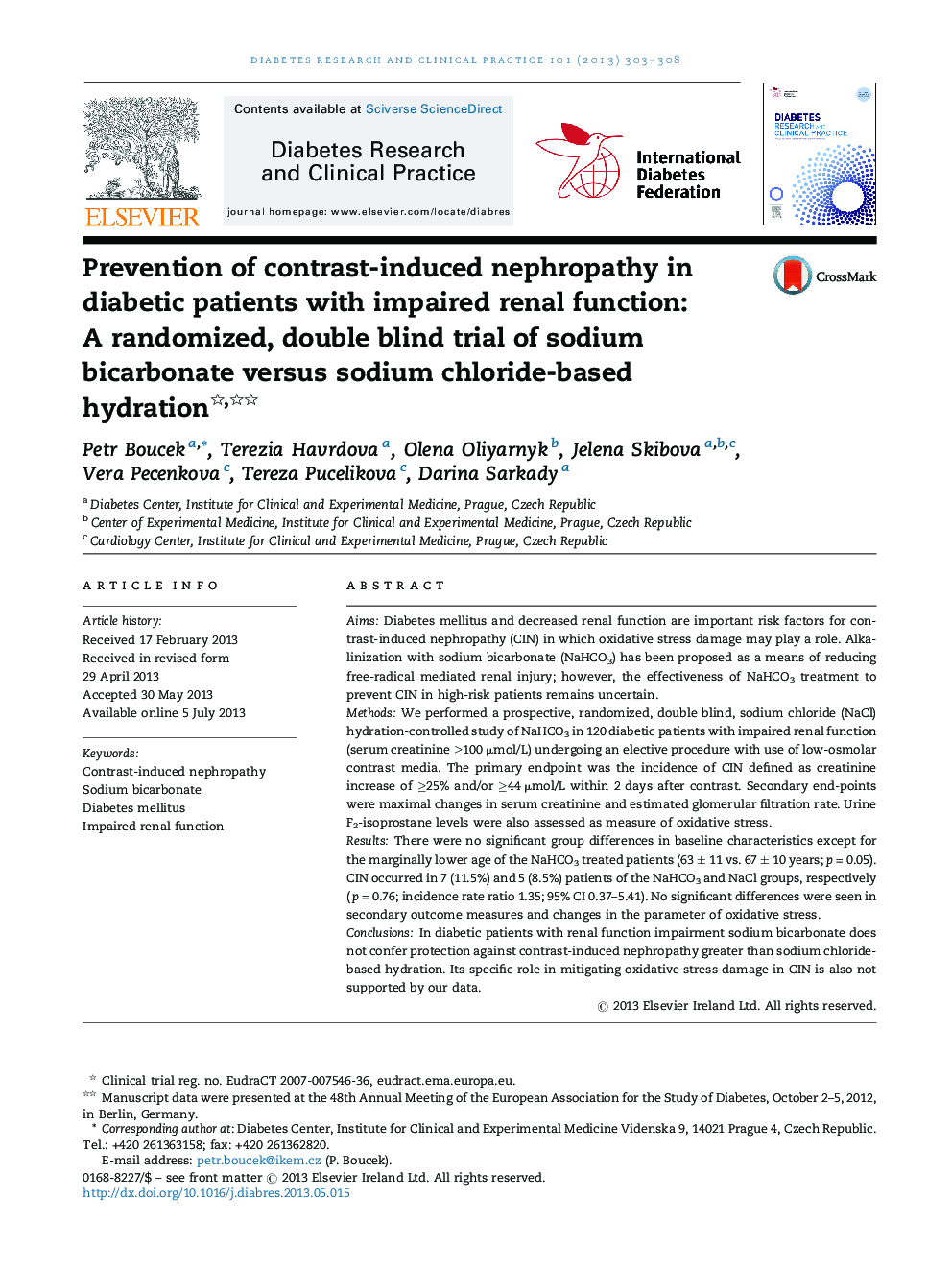| Article ID | Journal | Published Year | Pages | File Type |
|---|---|---|---|---|
| 5899865 | Diabetes Research and Clinical Practice | 2013 | 6 Pages |
AimsDiabetes mellitus and decreased renal function are important risk factors for contrast-induced nephropathy (CIN) in which oxidative stress damage may play a role. Alkalinization with sodium bicarbonate (NaHCO3) has been proposed as a means of reducing free-radical mediated renal injury; however, the effectiveness of NaHCO3 treatment to prevent CIN in high-risk patients remains uncertain.MethodsWe performed a prospective, randomized, double blind, sodium chloride (NaCl) hydration-controlled study of NaHCO3 in 120 diabetic patients with impaired renal function (serum creatinine â¥100 μmol/L) undergoing an elective procedure with use of low-osmolar contrast media. The primary endpoint was the incidence of CIN defined as creatinine increase of â¥25% and/or â¥44 μmol/L within 2 days after contrast. Secondary end-points were maximal changes in serum creatinine and estimated glomerular filtration rate. Urine F2-isoprostane levels were also assessed as measure of oxidative stress.ResultsThere were no significant group differences in baseline characteristics except for the marginally lower age of the NaHCO3 treated patients (63 ± 11 vs. 67 ± 10 years; p = 0.05). CIN occurred in 7 (11.5%) and 5 (8.5%) patients of the NaHCO3 and NaCl groups, respectively (p = 0.76; incidence rate ratio 1.35; 95% CI 0.37-5.41). No significant differences were seen in secondary outcome measures and changes in the parameter of oxidative stress.ConclusionsIn diabetic patients with renal function impairment sodium bicarbonate does not confer protection against contrast-induced nephropathy greater than sodium chloride-based hydration. Its specific role in mitigating oxidative stress damage in CIN is also not supported by our data.
